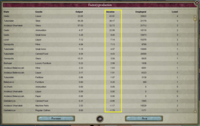Part 88: World of 1865
Chapter 8 - World of 1865It’s been over a quarter-century since the Congress of Cádiz first met, a great conference that saw hundreds of diplomats and emissaries meet to determine the future of a war-torn Europe, to establish an enduring balance of power in the continent, to promote monarchism and absolutism, to counter radical ideals and revolutionary movements, and to avoid another conflict as devastating and destructive as the Tirruni Wars.
It’s been just a quarter-century, and the Congress has already failed.

The world of 1865 is very different from what it was just twenty-five years ago. Empire-building has shifted from outright conquest to sphering smaller states, ambitious unions have been borne from war and turmoil, and rising nationalism has led to new nation-states taking their place on the world stage.
And changing with the world around them, the Great Powers have rearranged themselves, with the Dual Monarchy of France-England supplanting Morocco as the world’s leading power. Nipping at their heels is the South German Union, a Bavarian-led federation with ambitious aims to eventually unite Germany. Just behind them is Japan, a revolutionary republic on the edge of the world, unproven and untested against the true great powers. Hannover and Russia follow, both having collapsed to invasion and revolution, massively damaging their prestige on the world stage.

And not far behind them, we come to the Sultanate of Al Andalus, having just solidified their place amongst the great powers. Al Andalus has prospered over the past three decades, with twenty long years devoted solely to peace, reconstruction and industrialisation. This antebellum would quickly be followed by the Iberian War in 1858, however, a three-front conflict in which Al Andalus battled against the combined forces of Morocco, León-Castille, Qattalun, Italy and Palermo - and emerged victorious.
With that, Al Andalus retains its position as the dominant power in Iberia, with only the rump Qattalun emirate and Moroccan toehold standing in the way of complete control of the peninsula.

Unsurprisingly, reactionaries and conservatives remain dominant in the Majlis - the upper house of Al Andalus - but liberals and socialists have been making steady gains in recent years, despite adamant opposition from the larger parties. In retaliation, the Majlis lurches in the opposite direction, infuriating many by granting greater powers to Sultan Utbah, who has already begun wielding his newfound powers to great effect.


In terms of population, there has been positive growth despite the plagues and blights that hit Iberia in the 1840s, with the working male populace climbing from 3.5 million to 5.8 million, and the overall population now nearing 25 million people. The vast majority are Sunni Andalusi, but under the recent rule of the Royalist Faction, record numbers of Portuguese and Castilians have also been converting to Islam, hoping to benefit from the many boons granted to those who adhere to the state religion.

And our largest city is Qadis, to the surprise of nobody, with the capital of Al Andalus retaining its position as the most populous city in Europe. With Qadis currently boasting 560,000 working males, the closest competitors are in Dublin’s 450,000 male inhabitants, followed by Hanover and Paris trailing just behind.

The economy of Al Andalus is also prospering, despite the excessive military spending espoused by the Royalists, allowing the government to repay their war debts and raise education funding.

In terms of industry, the strong foundation laid down by the Moderates has allowed internal production to flourish in Al Andalus, with capitalists taking the reigns and constructing dozens of new factories throughout the peninsula.
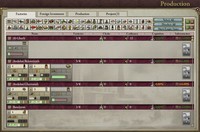
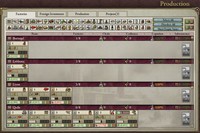
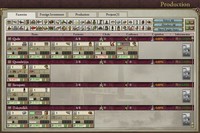
As for infrastructure, the Moderates had initiated an ambitious railroad project that eventually culminated in the opening of the Two Capitals Railway early in 1855, with state-of-the-art steam locomotives transporting passengers, hauling cargo and shipping freight between Qadis and Tulaytullah. With the ascent of the Royalists in the Majlis, however, railway fever has gradually begun to ebb, resulting in little enthusiasm for funding for new projects in eastern and northern Iberia.
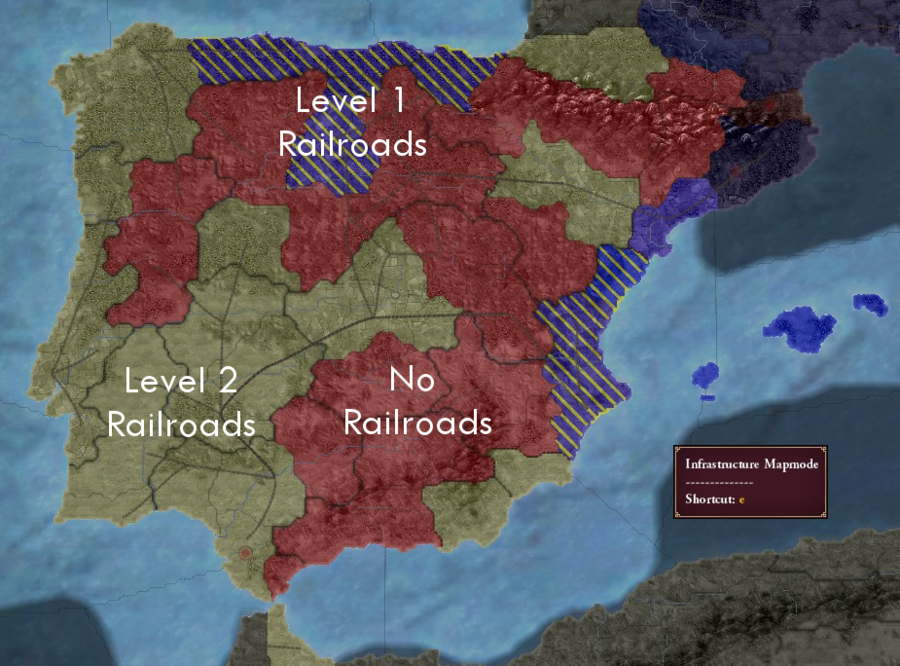
Technologically, the Royalists have devoted their energies and resources to modernising the standing army, in terms of both tactics and equipment. The reactionaries have also supported various cultural programs and initiatives when possible, but industry research has been falling behind in recent years, and naval technology is practically non-existent, with the Andalusi Fleet currently consisting of a few wooden transports.
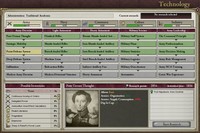
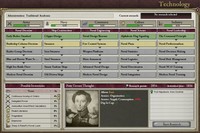

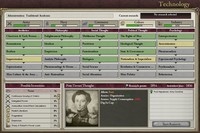

Finally, and most importantly, the Andalusi Army enjoys a hard-earned reputation as one of the strongest and most disciplined forces in the world. Once returned to full strength, the Andalusi Army will number 90,000 soldiers, all well-drilled and experienced, armed with the latest weaponry and led by capable, accomplished officers. A further 235,000 green, untrained recruits can be conscripted from the general populace in extreme circumstances, but that has been avoided thus far, with Al Andalus comfortably winning its two most recent wars.

Pulling back from Iberia, Europe as a whole has changed drastically over the past two decades, dominated by a struggle between two great powers: the Dual Monarchy and the South German Union. Their neighbours in Hannover and the Celtic Union have been in steep decline, both having suffered disastrous defeats on the battlefield, whilst the Russian Empire has gradually been drifting towards isolationism.
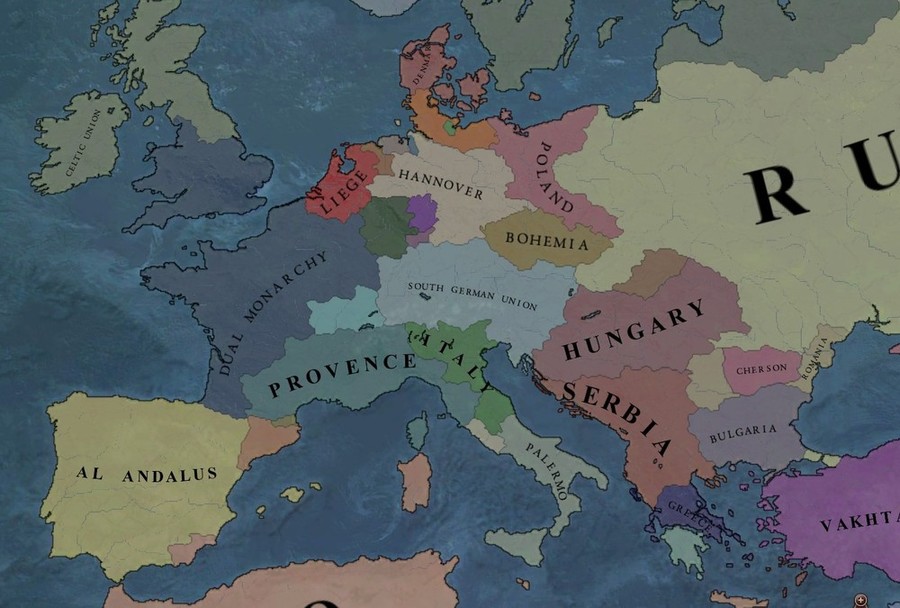
The Dual Monarchy and South German Union are two sides of the same coin, but one was borne from violent war, and the other through peaceful unification. Whilst the Dual Monarchy is content with its current borders, the South German Union has ambitions to eventually unify all Germans under their flag… but that would include the Rhine Confederacy, a principality firmly within the French sphere of influence, thus guaranteeing conflict between the two powers in the near future.
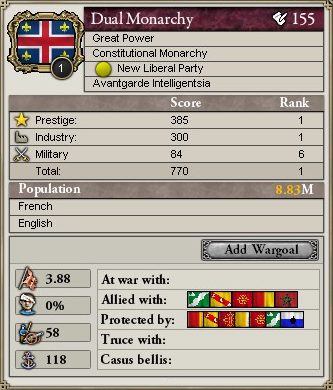
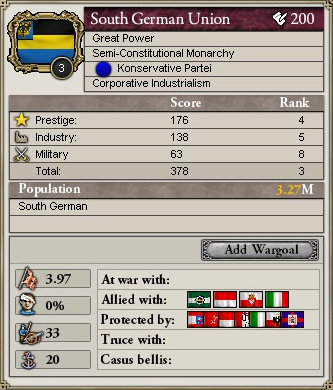
One of the main players in the wars to come is the Almoravid Sultanate of Morocco, which currently stands amongst the world’s strongest powers, second only to the Dual Monarchy. This position is largely owed to their prospering industry and strong naval tradition, especially since their standing army is an utter wreck, as evidenced by their crushing defeat in the Iberian War. Morocco quickly bounced back from that disaster, however, somehow forging a powerful alliance with the Dual Monarchy - thus uniting the two strongest powers in the world - forcing Al Andalus and the South German Union to retaliate by founding their own alliance.
This tenuous balance of power cannot hope to last, however, and the two blocs will clash sooner or later. And when they do, Europe will descend into mourning as half the continent is set aflame.
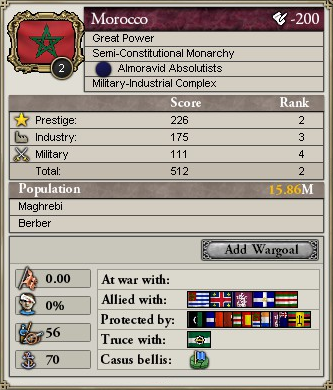
Finally, we come to the declining powers in Hannover and Russia, with the former having lost two wars in quick succession, and the latter having capitulated to liberal revolutionaries. But despite being forced to the peripheries, both are still very capable of resurging and retaliating, with dignitaries in Hanover and Smolensk already plotting to take the fight to the usurpers in the west.
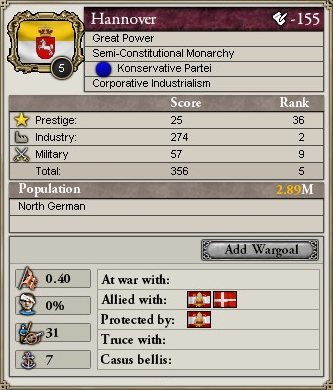
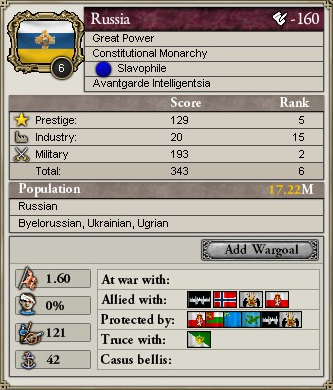
There’s little doubt that a new concert has been established in Europe, with the swift wars, secret alliances, mutual agreements and peaceful settlements of the past twenty-five years giving rise to new spheres of influence in the continent.
The Dual Monarchy has supremacy in the West, with French armies stationed in Provence, Lorraine, Liege and the Rhine Confederacy. The South German Union has already installed diplomats and advisors in Italy and much of north Germany, with only Hannover standing defiant. Al Andalus fought a short war to assert its authority in Palermo, overthrowing the young democracy and installing a puppet emir. The Celtic Union continues to meddle in the Balkans, Morocco has maintained its influence in Greece, and Russia retains hegemony in Eastern Europe.
This is the Concert of 1865.

The strong monarchial tradition, recent wars and chronic instability that has plagued the continent comes with far-reaching repercussions, however, including a flood of emigrants fleeing westward, to the more peaceful nations of the new world, where land is plentiful and riches are only a hard day’s work away. Or so they say.
Russia has suffered the greatest loss, followed by Al Andalus and the Dual Monarchy, with most of these refugees escaping to Albionoria and the Berber Union.
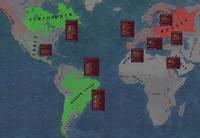
Migration mapmode on the 5th of February, 1865.
Moving to North Africa, Morocco remains the dominant power in the continent, but its neighbours are quickly climbing the ranks and may well challenge the Almoravids for their crown before very long.
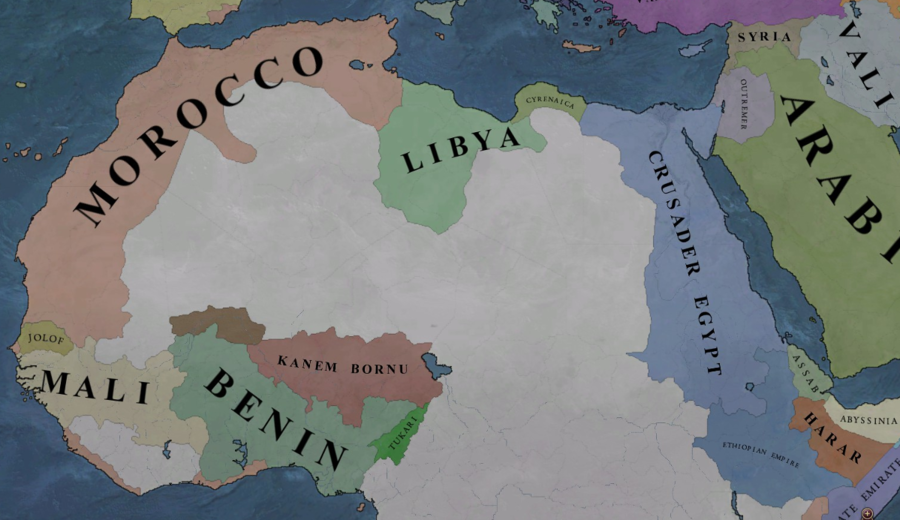
Crusader Egypt has effectively modernised its army in recent years, with their professional forces emerging victorious from a massive war against an Ethiopian-Arabian alliance, a far cry from their abysmal performance during the Tirruni Wars. King Apanoub followed this triumph up by formally annexing the Sudan into his empire, crushing the blood-wars and tribal feuding that plagued the vast region, and now sets his sights on Cyrenaica and Libya to the west.
And south from there, Benin has finally burst into the modern world, with Andalusi emissaries assisting them in reforming the army and administration over the past two decades. The pagan kingdom must prove itself on the battlefield before earning the recognition of the other great powers, however, having already embarked on its first offensive war and seizing the rich city of Timbuktu to the north.
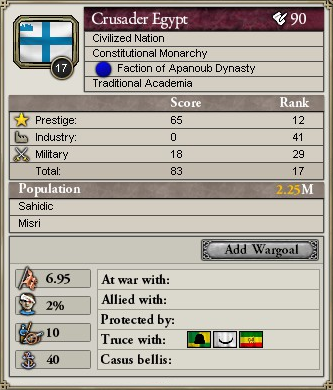
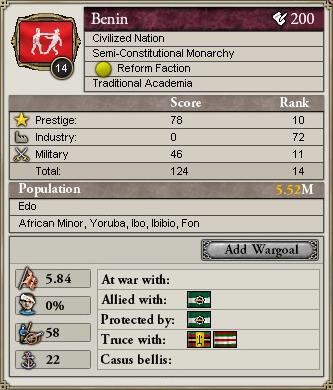
Whilst north Africa has largely been recognised as a Moroccan sphere of influence, the southern half of the continent is still very much unclaimed, with its vast savannahs and dense jungles rich with possibility and potential. Several powers have actually begun surveying the coast for possible colonialist ventures, with Morocco already dispatching armed expeditions to east Africa, quickly followed by Benin sending settles to claim the lands surrounding Kongo.
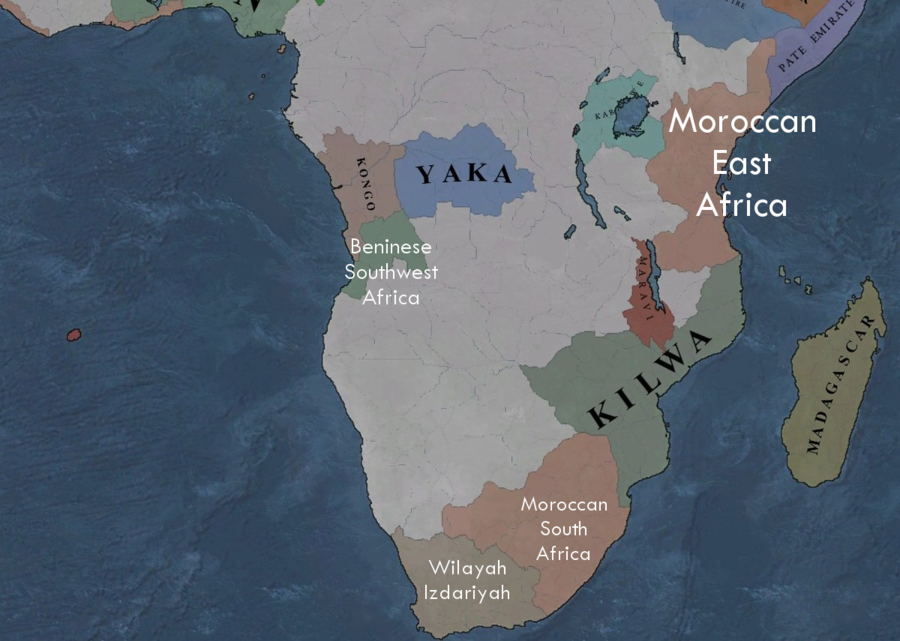
Pushing towards the sunrise, meanwhile, the Middle East has also undergone drastic change in recent decades. The Sharifian Caliphate of Arabia was proclaimed in Mecca in 1845, before immediately bringing battle to Syria, with the Caliph declaring his ambition to see all Arabs united under his rule. The Apanoub princes of Outremer have other ideas, however, repelling an Arabian invasion and counterattacking into Jordan, where harsh military rule was established.
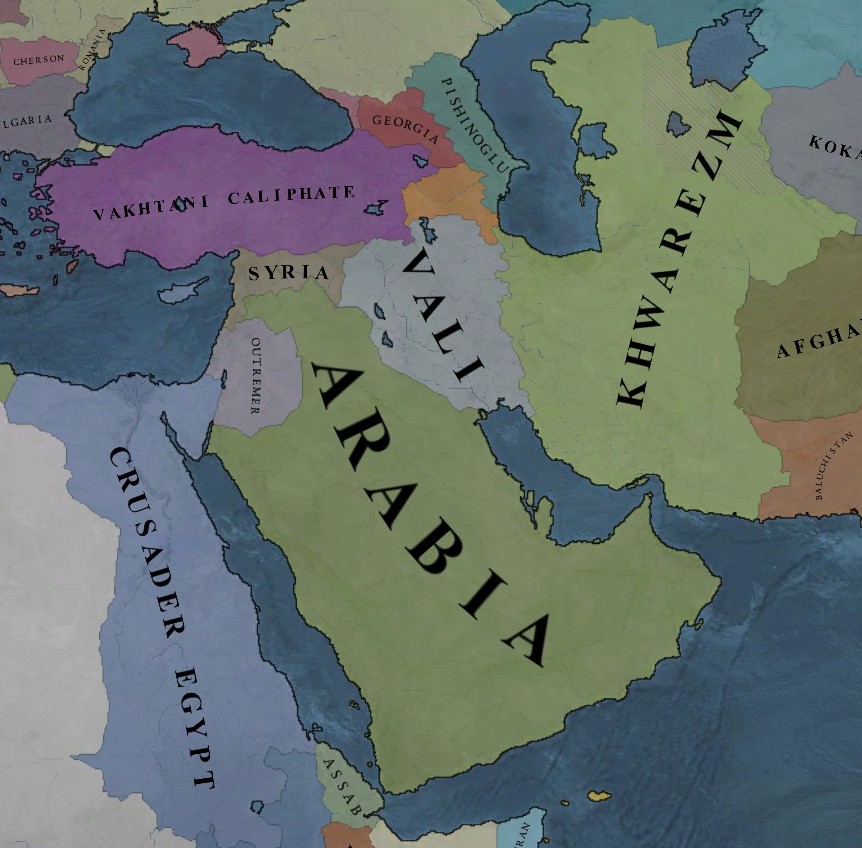
Needless to say, this state of affairs is not sustainable, especially with the establishment of a new alliance in the region - the so-called ‘Caliphal Pact’. Having both lost wars to Crusader Egypt, the Caliphs of Arabia and Armenia have agreed to a temporary alliance, determined to push the Christians from the Levant once and for all.
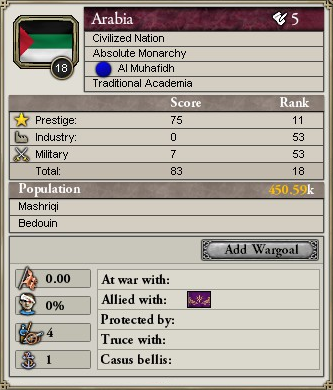
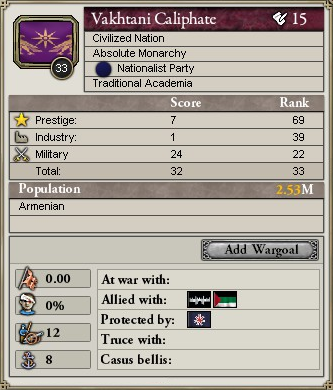
Across the Bosphorus, the Balkan peninsula has similarly descended into anarchy, as many had predicted after the Congress of Cádiz. Two wars have already been fought between Serbia and an alliance of Hungary, Bulgaria and Greece - with the Serbs victorious in the first, but defeated in the second. And as a third war begins to brew, a new player enters the fray in the east, where pan-nationalist revolts have established the Kingdom of Romania.
To the south, Morocco has finally withdrawn from Greece, establishing the Kingdom of the Peloponnesus in their place - though this principality is a vassal state to the Almoravid Sultan in all but name. The king of Greece has already begun agitating for unification, but unless he manages to win a powerful ally, he has little hope of reclaiming the peninsula from the Berbers.
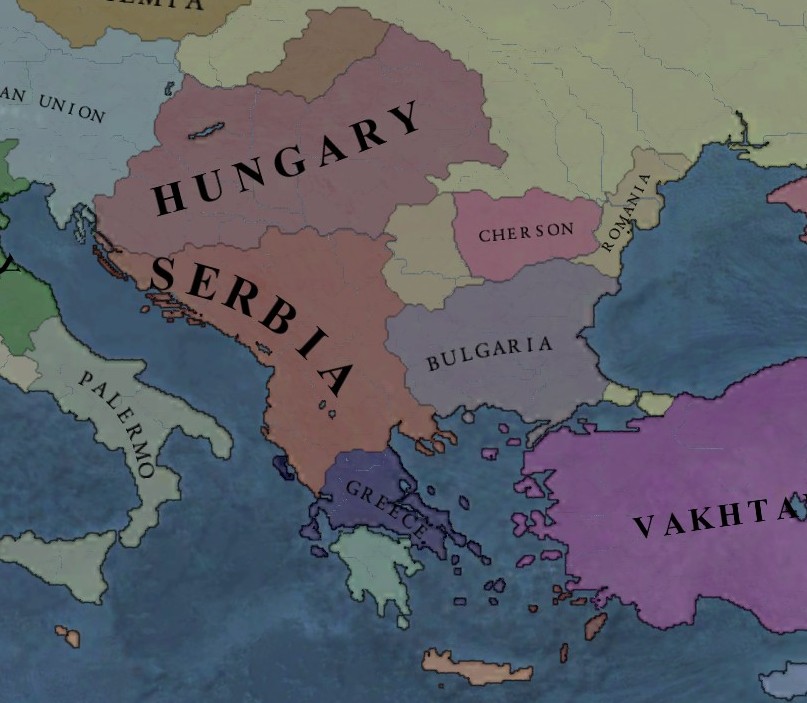
Moving towards the east once more, the Indian subcontinent has largely been dominated by the Berber Raj, which has gradually expanded its frontiers northward. Their dominance won’t go unchallenged for much longer, however, as Japan has begun meddling in the western minors, demanding extraterritoriality for their citizens, trading privileges for their merchants, and even territorial concessions in coastal cities.
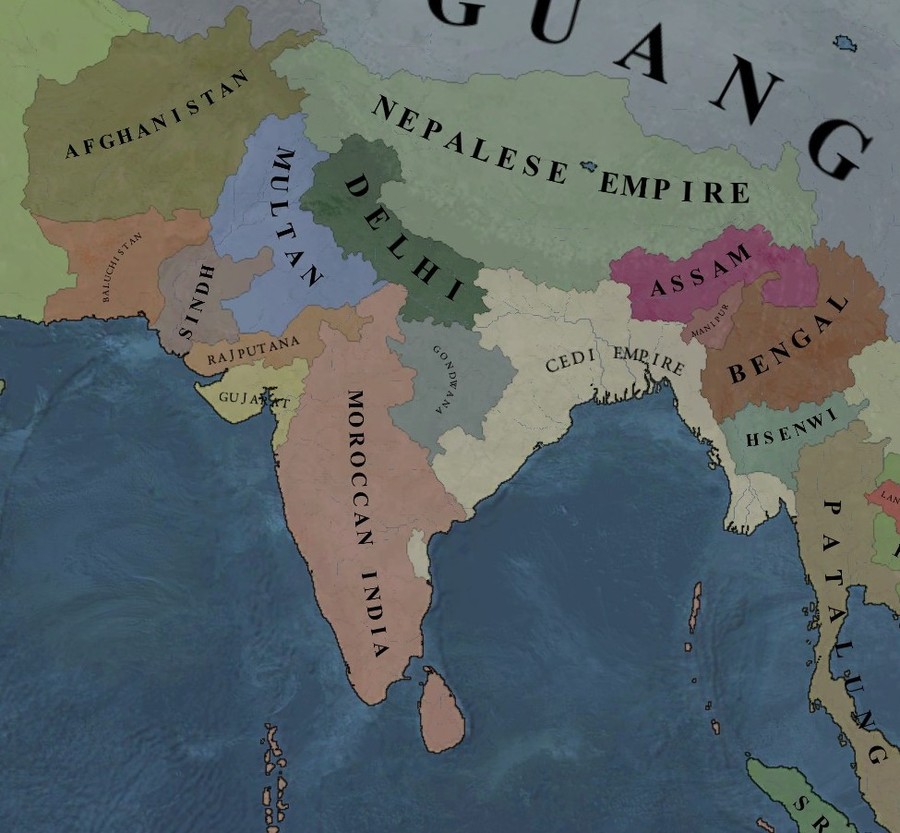
And not too far from there, the Dual Monarchy has only recently acquired its first new colony in centuries, conquering a stretch of coastal land in Indochina. Patalung, Khmer and Dai Viet are all ardently opposed to further European expansion, but with their armies downright primitive, there’s little they can do to counter it.
The French have also been expanding their existing colonies further south, claiming vast tracts of useless, inhospitable desert in Usturaliya whilst the Moroccans seize the choicer pickings in Indonesia.
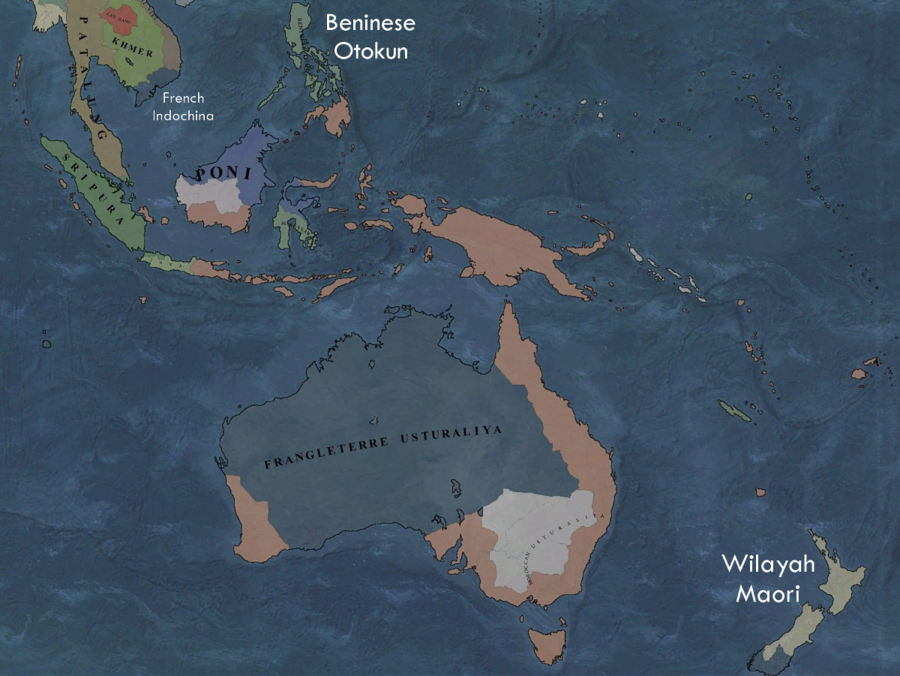
Pushing northward, East Asia has become a Japanese playground, with the revolutionary republic having already crushed the Mongol Empire in battle, conquered and annexed Manchuria, and established a protectorate in Buryatia. The Japanese now look to Siberia, to China and to India, where boundless riches and prestige beckon, and with them conflict with the Great Powers of the West.
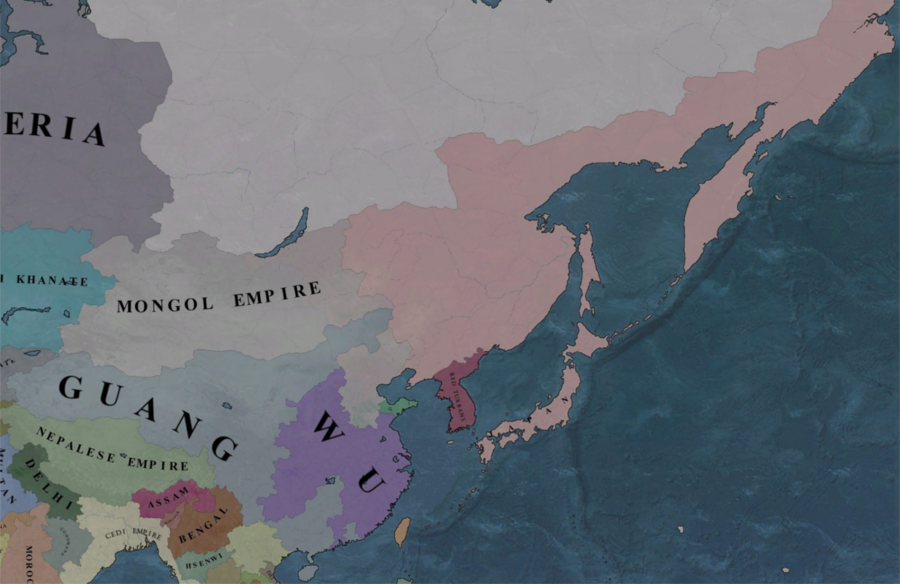
Across the choppy waters of the Pacific Ocean, North Gharbia has been carved between four powers: Ibriz, New England, Albionoria and the Dual Monarchy. Neimni Sund was forced to concede vast tracts of land in the face of New English invasions, before surrendering the Mississippi to Ibriz and their northern territories to Albionoria. Anbaila was absorbed into Albionoria, with the two powers unifying in the hope that a stronger whole would be capable of repelling an Ibrizi or New English invasion - a hope that has not been tested just yet.
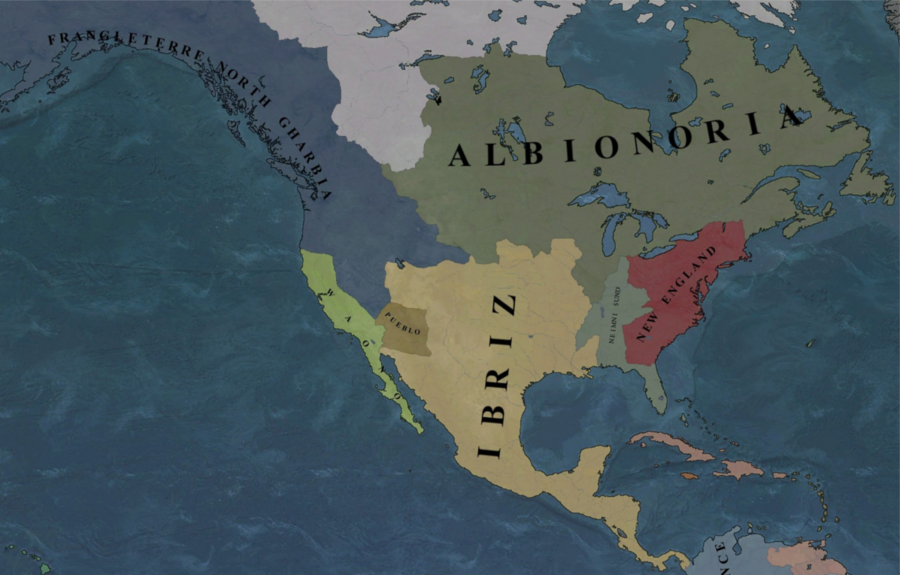
South Gharbia, on the other hand, has bore witness to the meteoric rise of the Union of Berber Sultanates. When the three sultanates of Imjir, Walidrar and Nuquril were first unified, their leaders embarked on a series of audacious wars termed the "submissions campaigns", in which the surrounding powers of New France, Charca, Tyratia and the Occidental Republic were all violently forced to submit to the Berber Union - forced to pay huge war reparations, open their markets, concede trading privileges and even lease territories to the Union.
As a result, the Berber Union has become the uncontested master of South Gharbia, with any attempts to interact with the continent going through them first.
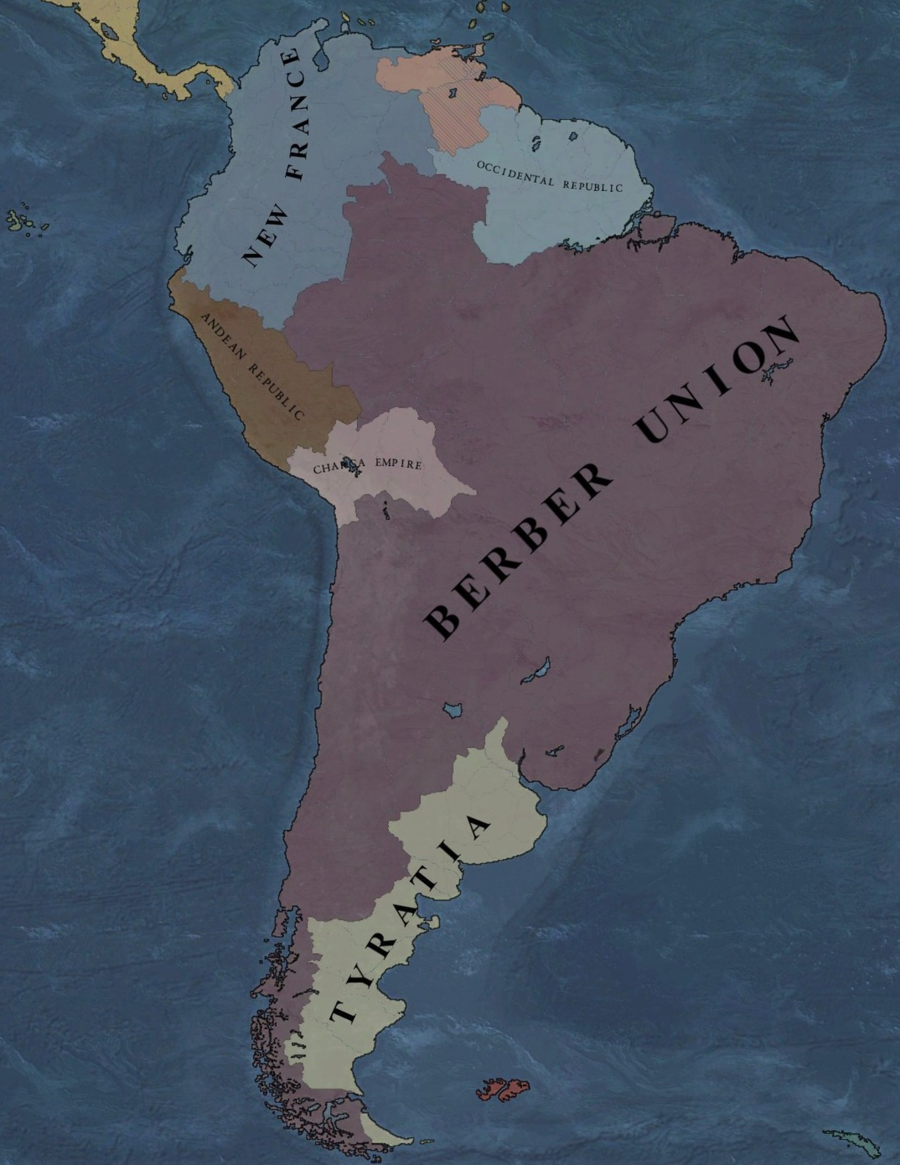
And with that, there could no longer be any doubt that Ibriz had finally lost its position as the supreme power in the new world. Efforts to revitalise the nation have already been launched, with Ibrizi politicians setting their sights on the north, where their demands to dissolve the Albionoria-Anbaila union had been ignored, a demeaning slight that would not go unanswered.
The Revolutionary Republic would not go to war without being certain of victory, however, long before the first bullets were fired. So a temporary alliance was forged with New England, their longtime rivals for continental dominance, with the two powers beginning to plan for a joint invasion of Albionoria.
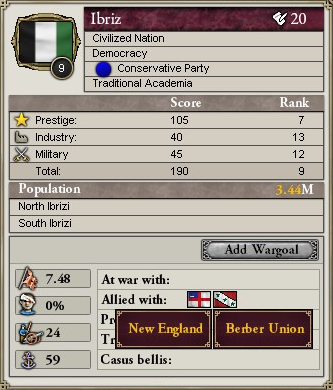
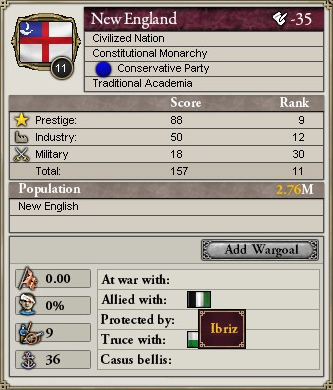
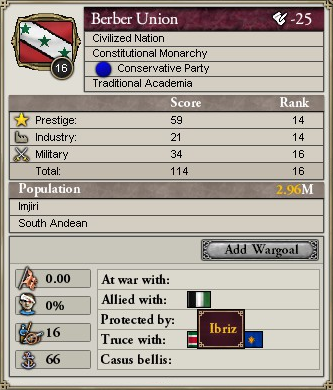
And with that prelude to war, this briefing comes to an end. The past twenty-five years have been unstable and unpredictable, and the next twenty-five promise to be the same. With the Congress of Cádiz exposed to be fraudulent sham, liberals and socialists coming to prominence in Europe, advancements in technology continuing unabated and the Great Powers greedily looking to Africa, the only certainty is that the world of 1900 will be a very different place from now.
———
World map:

Culture map:

Country rankings:
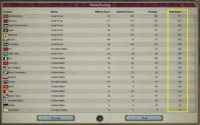
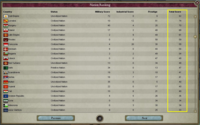
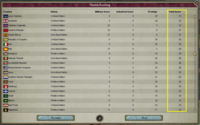
Largest economies:

Population rankings:

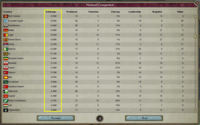
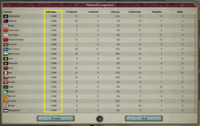
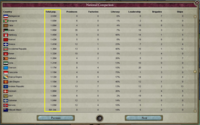
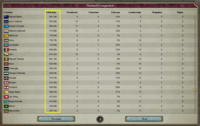
Largest armies:
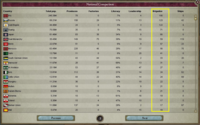
Largest navies:
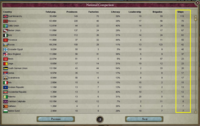
Our factories:
